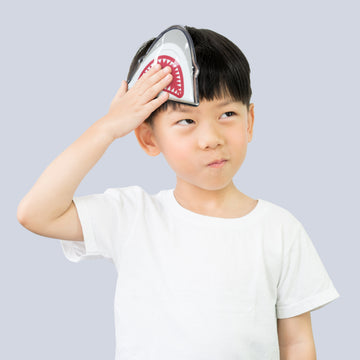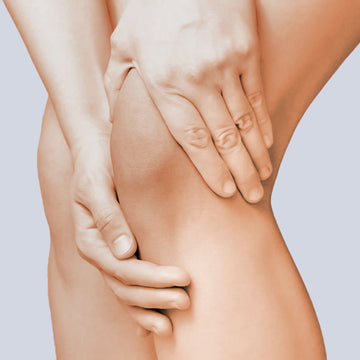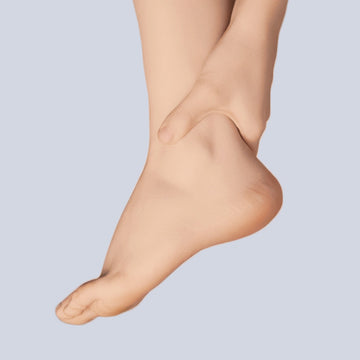Posted by Tia Patel | Mar-25-2021

Tips to combat stress
1 in 4 people experience mental health issues each year (mind).
After the tough year we've all had, it's fair to say we all know what it's like to feel stressed. But when we say things like "this is stressful" or "I'm stressed" - it's not always easy to pin down exactly what stress means. It’s vital that we are able to recognise our own stress triggers and deploy coping strategies that will prevent stress from taking over our lives!
For #NationalStressAwareness month we’ve rounded up everything you need to know about stress, including how stress can increase pain perception, tips for combatting stress and the benefits of running as a coping strategy.
What is stress?
Stress is the body's reaction to feeling threatened or under pressure. This can be a real threat, or even a perceived one. It's a very common feeling which in the right amounts, can be motivating, and helps us to achieve things in our life.
On the flip-side, too much stress can affect our mood, our body and our relationships – especially when it feels out of our control. It can make us feel anxious and irritable, and affect our self-esteem. Experienced over a long period of time, stress can lead to a feeling of physical, mental and emotional exhaustion, often called burnout. This is a common contributor to mental ill-health.
Signs of stress…
Stress can make us feel, behave or act differently, here’s how:
- How you might feel - irritable, aggressive, impatient or wound up, anxious, nervous or afraid, your thoughts are racing and you can't switch off, unable to enjoy yourself, depressed, uninterested in life, like you've lost your sense of humour, a sense of dread, worried about your health, neglected or lonely.
- How you might behave - finding it hard to make decisions, constantly worrying, avoiding situations that are troubling you, snapping at people, biting your nails, picking at your skin, unable to concentrate, eating too much or too little, smoking or drinking alcohol more than usual, restless, you can't sit still and you may be tearful or burst into tears.
- How you might be physically affected - shallow breathing or hyperventilating, you might have a panic attack, muscle tension, blurred eyesight or sore eyes, problems getting to sleep, staying asleep or having nightmares, low libido, tired all the time, grinding your teeth or clenching your jaw, headaches, chest pains, high blood pressure, indigestion or heartburn, constipation or diarrhoea, feeling sick, dizzy or fainting.
Why stress causes an increase in pain?
When the body is in stress, chemicals such as adrenaline, cortisol and other hormones are released. These chemicals can cause your muscles to tense or spasm and become inflamed which increases pain. Common muscle pain or tension locations are the neck, shoulders, face, jaw, lower back, and the abdominal. Many of the steps you can take to control stress will also reduce your pain.
Tips to combat stress
1. Exercise - whilst a workout won't make your stress disappear it will reduce some of the emotional intensity that you may be feeling so you can clear your thoughts and deal with a problem in a calm manner.
2. Eat well - Eating a healthy diet can reduce the negative effects of stress on your body. A healthy diet builds a solid, more enduring foundation for your body by reducing oxidative stress and inflammation - helping to reduce weight gain. Foods high in antioxidants, like strawberries, blueberries, raspberries and goji berries, are great for reducing oxidative stress.
Check out these tips on the importance of eating breakfast
3. Sleep well - Sleep deprivation can occur as a result of feeling stressed and heighten the effects of stress on the body. Following a regular sleep routine calms and restores the body, improves concentration, regulates mood, and sharpens judgment and decision-making.
Are you struggling to sleep? Take a look at these tips for sleeping better
4. Take control - The feeling of loss of control is one of the main causes of stress. Taking control to solve a problem and find a solution can be empowering and prevent stress from getting out of hand.
5. Connect with people - A good support network of colleagues, friends and family can provide a shoulder to turn to and help you see things in a different way. Simple activities such as going for a walk or spending time with someone else can be an excellent way of relieving stress.
Read our steps to maintaining healthy relationships
6. Me time’ - Whether it's extra time spent in the bath after a long run or a day in bed, binge watching Netflix, It's not selfish to take time to relax and pamper yourself - this will prevent you from overworking yourself and give yourself time to breath and enjoy life.
7. Challenge yourself - Setting yourself goals and challenges, whether at work or in exercise. This could simply be a personal best run time or distance. Reaching goals help build confidence and reduce the feeling of unaccomplishment and stress.
8. Try to be positive - Look for the positives in life, and things for which you're grateful. Try writing down 3 things that went well, or for which you're grateful, at the end of every day as a reminder of the good in your life.
5 Ways running helps reduce stress
- Calms you down - All runners will have experienced the euphoria-like feeling of a ‘runner's high’ post run, it's why we keep running! The runner’s high is caused by our brains releasing endorphins, the feel-good hormone with exercise also slows the release of stress hormones like cortisol. This can help you avoid those big spikes in feelings of stress and anxiety.
- Offers a break from the outside world - If like us you're fed up of seeing more lockdown news everytime you turn on the telly then running could be the perfect distraction you need to unplug from social media and the news for a physical and mental release from the world's problems.
- Supports a healthy immune system - Exercise can help keep you at a healthy body weight, reduce blood pressure and improve circulation with improvements to your general health keeping your immune system functioning at its best and help you fight off the dreaded covid which has possibly been the cause of some stress in your life this past year.
Check out the most common running injuries and how to prevent them
- Creates a sense of community - The feeling of loneliness has hit us all and not being able to see friends and family can leave us feeling disconnected. Going for a run can help you reconnect with the world and the running community is full of support and motivation. Whether it's a wave, smile or nod across the street, the running community is known for being there for each other - and that's why we love to be a part of it!
Check out these virtual run challenges
- Gives you something to look forward to. Whether you’re looking forward to your next run on the trails, your next 5k personal best at park run, or a race that’s planned for next year, running is great because there’s always some kind of goal you can create and work towards. Booking yourself a race can give you something to look forward to and make you forget about the here and now and the causes of your stress.
Read our 2021 race calendar here
So the next you feel stressed try one these tips to combat stress!
#TeamGPD
















